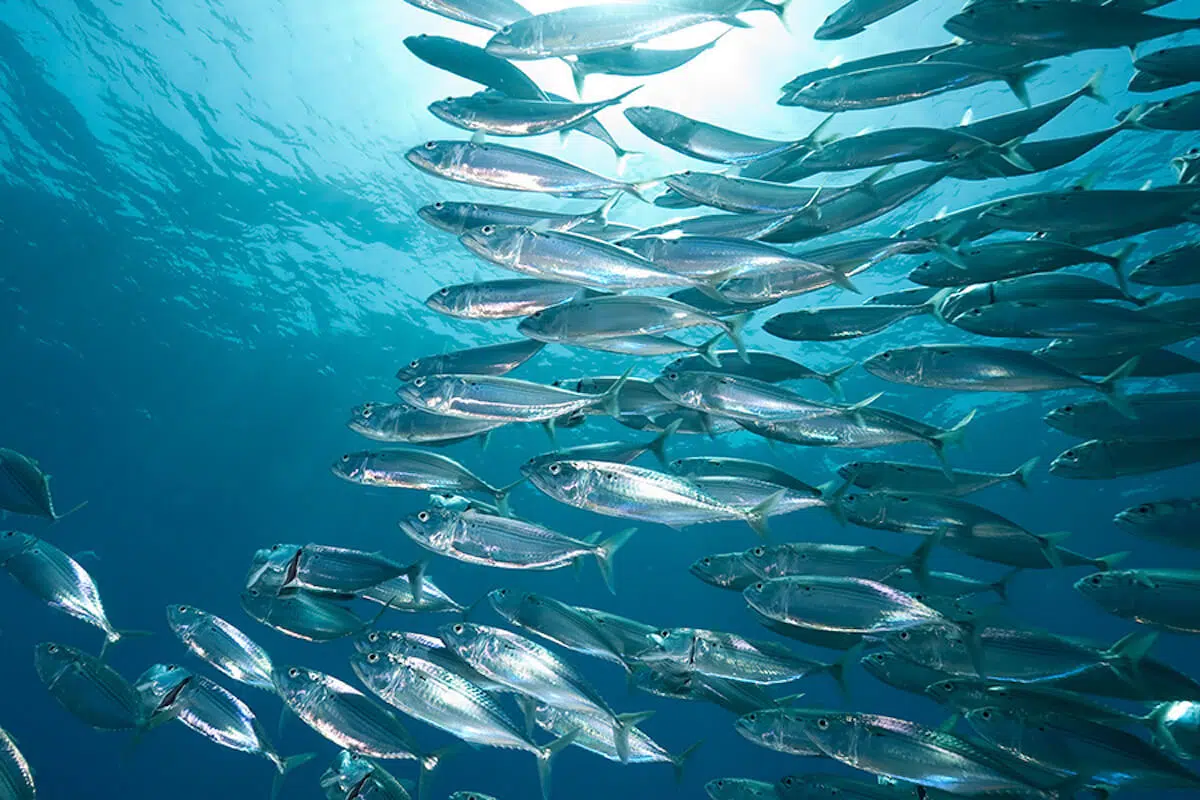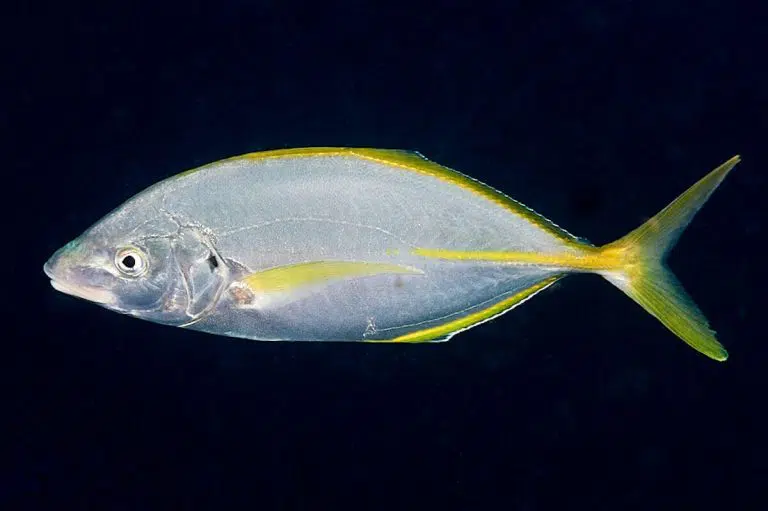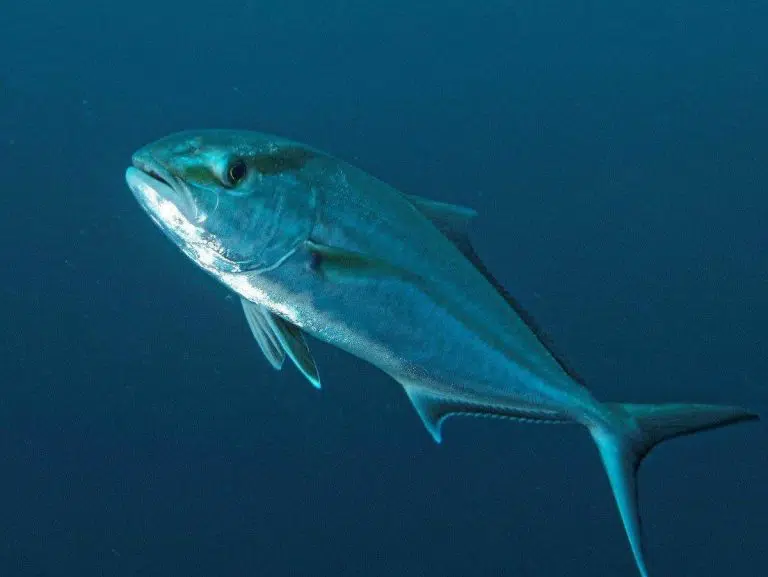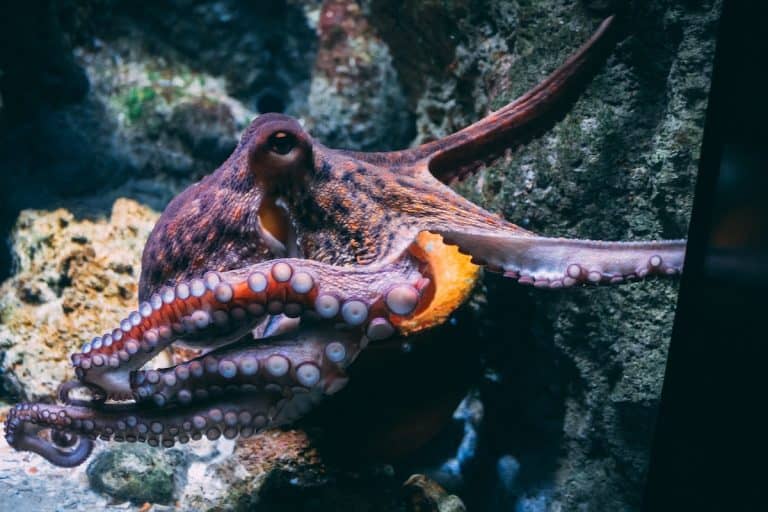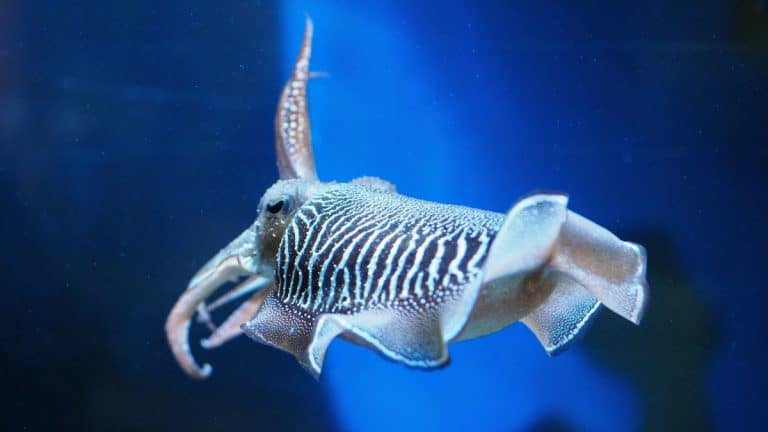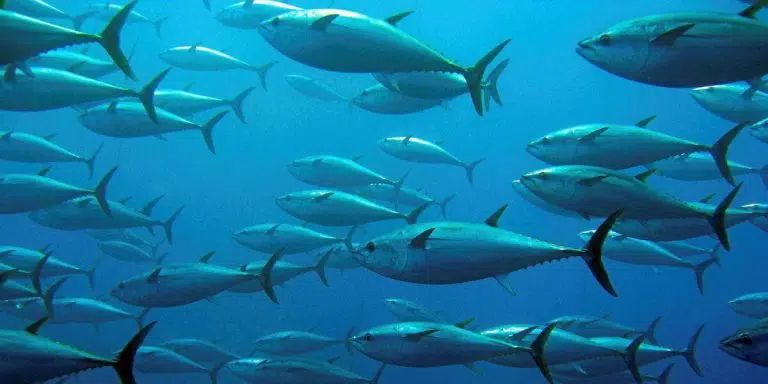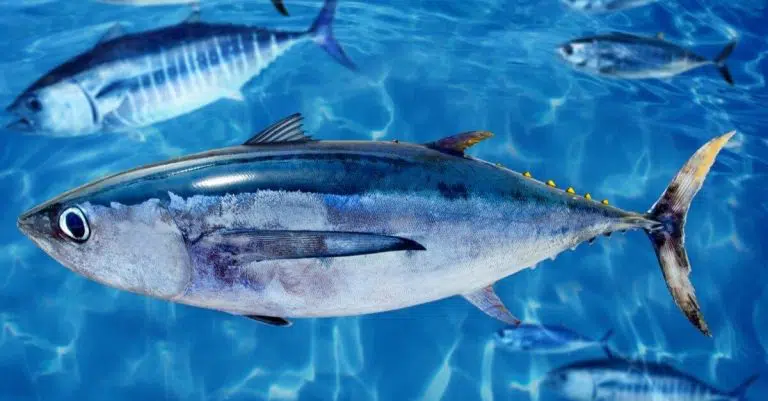Source: Wild
Mercury Risk: Low
Atlantic mackerel, or saba, is a schooling fish found throughout much of the Atlantic Ocean. It is one of the three types of mackerel most commonly found in sushi bars (the others are aji and sawara.) Of the three, saba is the most widely encountered option.
Mackerel does not keep well, and if it is not consumed within the first several hours after being caught, it may cause food poisoning. For this reason, the members of the mackerel family are traditionally salt-cured or pickled before being served as sushi.
Atlantic mackerel is caught in great numbers by the fleets of numerous countries. Although there have been concerns over stock strength in the past, especially in the waters around the British Isles, the U.S. domestic mackerel fishery is relatively well-managed. Moreover, it is supported by strong stocks and uses low-impact fishing gear, primarily mid-water trawls (large nets that do not touch the seabed).
Much of the imported European mackerel is not as sustainable as U.S. product due to a history of stock depletion. However, when Sustainable Sushi was first written, one particular foreign mackerel fishery looked relatively solid: the handline mackerel fishery in Cornwall (southwest England), which had been certified by the Marine Stewardship Council and seemed to be a well-managed, sustainable fishery. Unfortunately, this is now being challenged by external factors.
Climate change and warming water temperatures are driving the mackerel stock that frequented UK waters farther north. With the fish have entering Icelandic waters, Reykjavik has announced a new unilateral quota targeting this population. Iceland has never fished on this mackerel population before, but has now laid claim to over 100,000 mt of the fish annually, and has done so without regard for the coordinated international quota which the EU, Norway, and Russia have set for the stock. This is worrisome. It remains to be seen how the European Union, not to mention the MSC, responds to Iceland’s actions.
It should be mentioned that the term saba can also refer to Scomber japonicus, the Pacific mackerel. Less is known about Pacific mackerel fisheries than their Atlantic counterparts, but they benefit from the same inherent resilience and low-impact catch methods that make Atlantic saba such a positive option.
In general, domestic saba is a much more sustainable choice than many other sushi options and can be enjoyed on a regular basis. It also has the benefit of low mercury levels—a good thing for women who are or will soon become pregnant.
Casson Trenor
Casson Trenor is a frequent commentator on sustainable seafood issues. He has been featured in regional, national, and international media outlets, including CNN, NPR, Forbes, New York Times, Boston Globe, Christian Science Monitor, San Francisco Chronicle, Los Angeles Times, Seattle Times.

